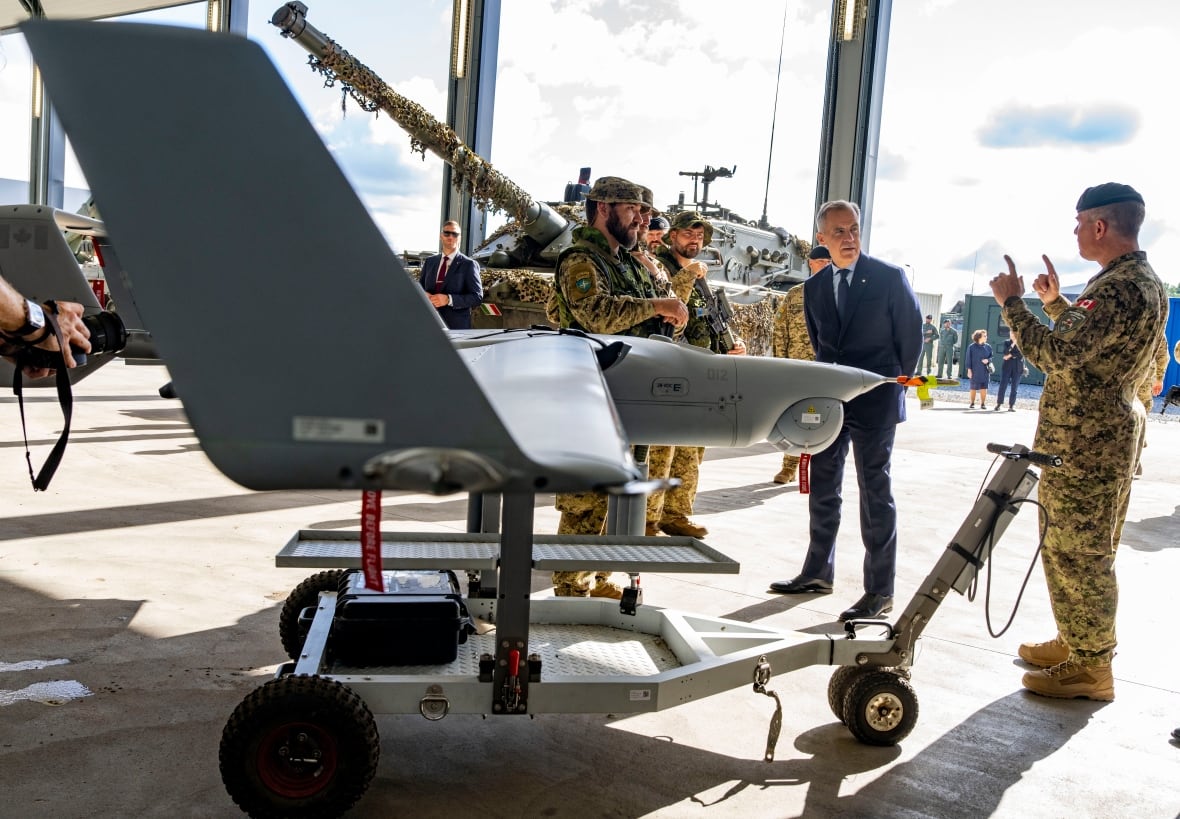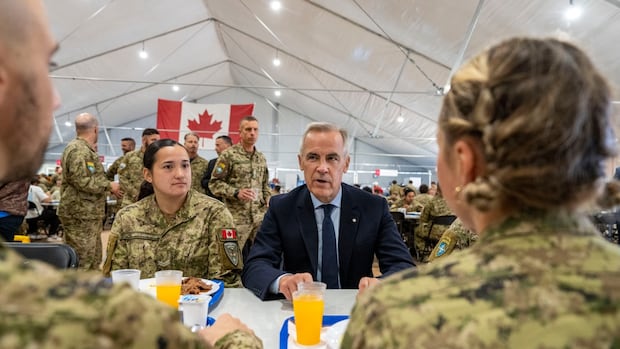The Liberal government has extended Canada’s NATO presence in Latvia for another three years, but it is still struggling to fill in the equipment gaps as the war in Ukraine rapidly reshapes the battlefield troops might be expected to fight on.
Prime Minister Mark Carney announced the three-year extension Tuesday night following a meeting with Latvian Prime Minister Evika Silina in Riga, the capital of the Baltic country.
On Wednesday, he visited Canadian troops at Camp Adazi, where roughly 2,200 Canadian soldiers are serving along with 1,300 troops from more than a dozen other NATO nations.
“We know that peace can only come through strength,” Carney said in his remarks to hundreds of troops who had assembled a display of fighting vehicles and equipment for the prime minister to inspect. “In the years since its inception, the need for Operation Reassurance has only increased.”
The threat posed by Russia, which borders Latvia, won’t go away quickly, the prime minister said.
“While you have long understood the threat of Russian aggression,” Carney said Tuesday as he announced the extension of Canada’s military presence. “Putin’s illegal invasion of Ukraine shattered any previous assumptions that many others held of European post-Cold War security.”
Prime Minister Mark Carney announced the extension of Canada’s military training mission in Latvia until 2029, part of the government’s commitment to NATO to increase defence spending.
Prior to speaking before the troops Wednesday, Carney toured through newly constructed barracks and tank sheds filled with Canadian Leopard 2A4 main battle tanks, many of them late 1980s and early 1990s vintage.
The increasing age has made it tough for the military to keep a stock of spare parts to keep them running.

Defence Minister Daivid McGuinty, who accompanied the prime minister, said the government acknowledges the tanks will have to be replaced.
“The government’s pursuing a major rebooting of the Canadian Armed Forces, top to bottom. We began by securing the finances necessary to do that,” McGuinty said in reference to the extra $9.3 billion being poured into defence spending in the current budget year.
“We’re going to take our lead from the professionals who run the Canadian Armed Forces. We’re obviously working with them to see what their needs are and how to get those needs met.”
Throughout the tour Carney was guided by Col. Kris Reeves, the Canadian brigade commander and Maj.-Gen. Jette Albinus, Danish commander of the NATO division in Latvia.
Albinus thanked him for Canada’s continued support of the mission.

Spending on drones
The federal government was forced to quickly procure anti-drone, anti-tank and a short-range air defence system for troops deployed in Latvia, but challenges remain.
“Just turn on the news and you see how important drones are in the Ukraine fight,” Reeves told reporters “We are watching and studying to understand that fight, but we need those pieces of equipment here in Latvia.”
The army recently introduced a small number of RQ-21 Blackjack surveillance drones to Latvia, where a handful of soldiers are now operating them, but Reeves said more are needed.
Reeves said the extension of the deployment is good news because it provides certainty in terms of planning and dealing with allies.
“I have the confidence that we’re here for the long haul,” Reeves said.







